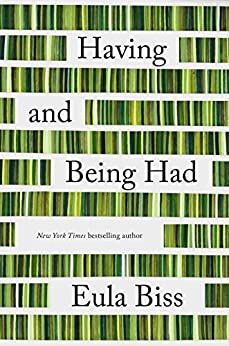More on this book
Community
Kindle Notes & Highlights
The dresser is simple and Shaker in its design. Shakers believed that the end of the world was near, which would seem to be an argument for temporary furniture, but making something built to last was, for them, an act of prayer. “Do all your work as if you had a thousand years to live,” Mother Ann Lee told her brethren, “and as you would if you knew you must die tomorrow.”
“One of the main things Marx noticed about capitalism,” she writes, “is that it really encourages people to have relationships with things instead of with other people.”
Dividing the good rich from the bad rich is a waste of time, Sherman suggests, for the rich and everyone else. “Judging wealthy people on the basis of their individual behaviors—do they work hard enough, do they consume reasonably enough, do they give back enough—distracts us from other kinds of questions about the morality of vastly unequal distributions of wealth,” she writes. We shouldn’t ask our rich to be good, in other words, we should ask our economic system to be better.
Credit is a form of optimism, Yuval Noah Harari suggests. It depends on the belief that the future will be more prosperous than the present. I kept the silverware because I couldn’t tell the difference between credit and wealth. If I had a better eye for class, I would have seen that I was surrounded by people subsisting on credit, living precariously and passing as middle class. Credit creates the illusion of equality, in that we can all buy the same things on credit, but we can’t all pay the debt back.
Work, Lewis Hyde writes, is distinct from labor. Work is something we do by the hour, and labor sets its own pace. Work, if we are fortunate, is rewarded with money, but the reward for labor is transformation. “Writing a poem,” Hyde writes, “raising a child, developing a new calculus, resolving a neurosis, invention in all forms—these are labors.” This list reveals to me my problem. I want to give my life to labor, not work.
That was long before his drag race. Now he wears pink suits with secret stitching inside that reads: “YOU’RE BORN NAKED AND THE REST IS DRAG.” We’re all performing, he wants us to know, but some of us are following the script more closely than others, and some of us have been given easier parts. Easier parts with better pay.
The witch hunts, Federici argues, weren’t about superstition or religion so much as they were about suppressing the rebellions of women. In feudal Europe, peasant women lived under the authority of a lord, who claimed possession of them. But they had a kind of economic power that women wouldn’t have again for hundreds of years. Peasant women were often partners in holding land, and they could inherit property. The work they did in their homes and gardens was considered real work with real value. They produced cloth and soap and medicine. Later, as cities grew, women worked in hundreds of
...more
A study of job satisfaction among hospital janitors found that the janitors who reported the greatest satisfaction were the ones who thought of their work as caring for the sick, though their job description was a list of duties like “collect and dispose of soiled linens” and “stock restroom supplies.” When these janitors described their work, they talked of visiting the patients who had the least visitors, joking with patients to cheer them up, writing letters to patients who had gone home and might be lonely, and carefully cleaning the rooms of the patients who were most vulnerable to
...more
Middle age is really all about maintenance, my mother once said. I was a teenager when she said this and I was helping her scrape the peeling paint off her house, which would later burn down. You spend your life accumulating things, she said, and then you have to maintain them. Your house, your car, your body. You have to maintain your children, too, and your parents. This seemed sadder to me then than it does now. I don’t like trimming the hedges, but I feel anchored by the chore. Maintenance is the tax I pay on this life, I think. And that is why I want to do it by hand, with heavy shears.
The way we think about value is one of the things Mazzucato would like to change. Our understanding of value, she observes, is circular. “Incomes are justified by the production of something that is of value. But how do we measure value? By whether it earns income.” And so, “the concept of unearned income vanishes.” If we could think about value differently, we could modify our economic system so that something of value to our entire society, like the well-being of our children or the preservation of our environment, would also have economic value. Investment is essential, she argues. But we
...more
Health is a mark of money in our time, when a longer life span can be bought. The rich of this country are living to be older and older now, while everyone else is dying younger. “Perhaps the starkest measure of the failure of our economic policies,” Binyamin Appelbaum writes, “is that the average American’s life expectancy is in decline, as inequalities of wealth have become inequalities of health.” Meanwhile, life remains the ultimate privilege, the living lording over the dead.


